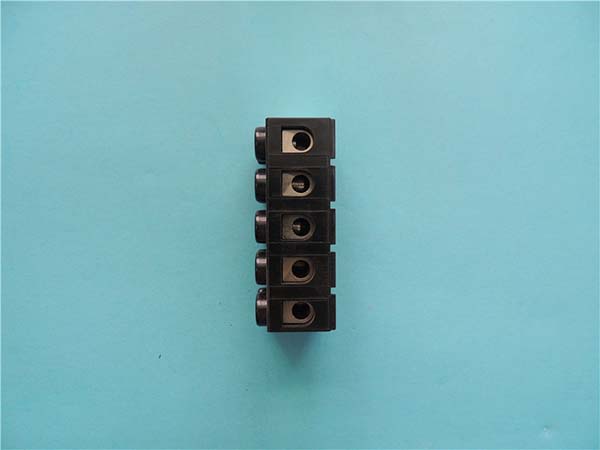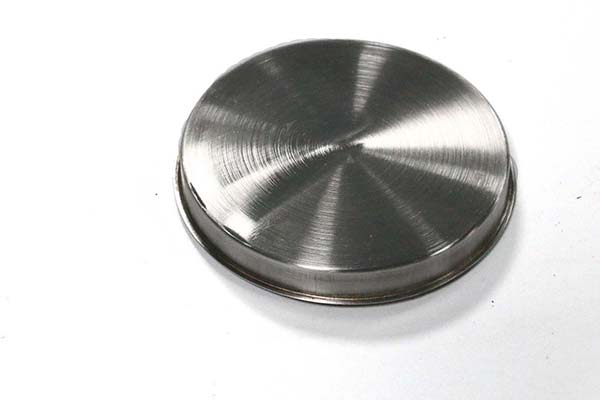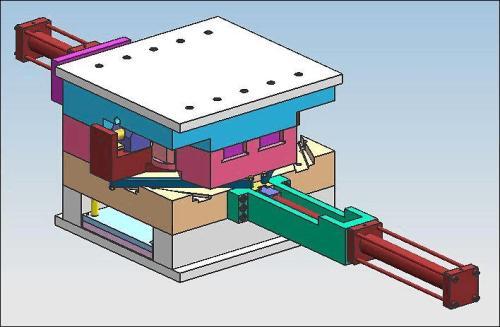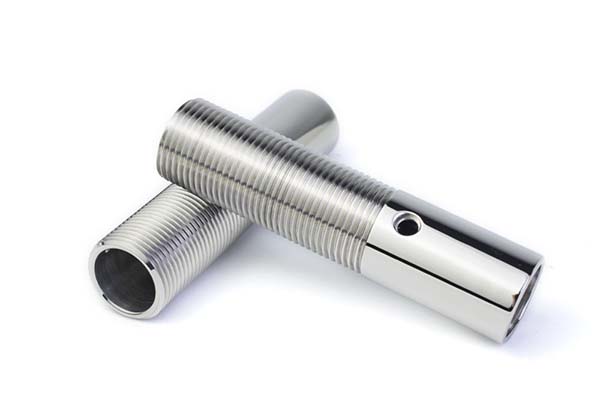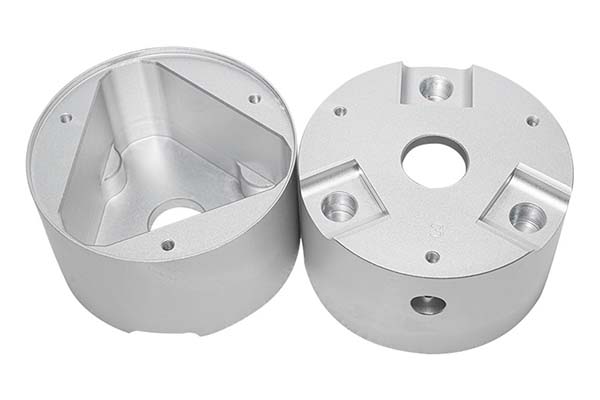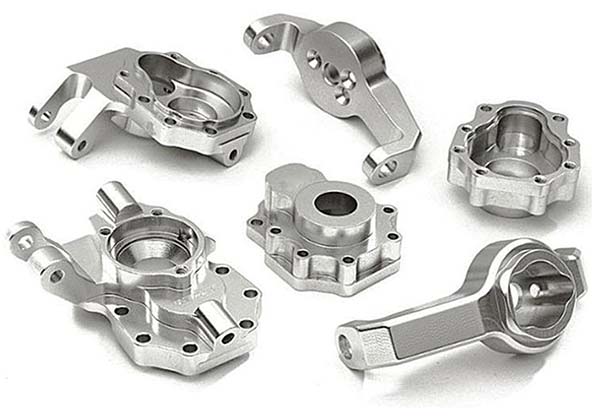Introduction
In the global manufacturing landscape, outsourcing machining has emerged as a strategic approach for numerous companies aiming to optimize operations and enhance competitiveness. Outsourcing machining refers to the practice of contracting out the machining processes, such as milling, turning, and drilling, to external specialized providers. This allows businesses to tap into external expertise, resources, and cost - effective solutions without the need for in - house investment in extensive machining facilities and skilled labor.
China, in particular, has become a dominant force in the outsourcing machining market, attracting a vast number of international clients. But what exactly makes China so appealing? From its cost - effectiveness to its technological prowess and vast manufacturing ecosystem, there are multiple layers to explore. In the following sections, Yigu Technology will delve deep into the various advantages of outsourcing machining needs to China, providing you with a comprehensive understanding that can help you make informed business decisions.
Cost - Effective Production
Labor Costs
Labor cost is a significant factor in machining operations. In China, compared to many developed countries, the labor cost is relatively low. According to data from the International Labor Organization, the average hourly wage for manufacturing workers in the United States is around \(25 - \)30, while in China, it ranges from \(3 - \)8, depending on the region and skill level. This substantial difference allows companies outsourcing machining to China to achieve significant cost savings. For Yigu Technology example, a medium - sized project that requires 10,000 man - hours of machining work. If carried out in the US, the labor cost would be approximately \(250,000 - \)300,000 based on the hourly wage. In China, the labor cost would be only \(30,000 - \)80,000, which is a remarkable reduction. This cost advantage enables businesses to allocate resources more efficiently, either investing in other core aspects of their operations or offering more competitive pricing in the market.
Material Costs
China has a vast and well - developed raw material market. It is rich in many key raw materials required for machining, such as various grades of steel, aluminum, and copper. The large - scale production and high - volume supply in the domestic market contribute to relatively stable and favorable material prices. For instance, the price of common carbon steel in China is often 10% - 30% lower than in some European countries. Moreover, China's strong supply chain means that the procurement process is more convenient and efficient. With a large number of reliable suppliers, companies can easily source high - quality materials in a timely manner, reducing inventory costs and the risk of supply disruptions. This stable and cost - effective material supply is crucial for keeping the overall machining costs down, especially for long - term and large - scale projects.
Economies of Scale
China's status as a global manufacturing powerhouse means that it benefits from economies of scale in outsourcing machining. When a large number of machining orders are concentrated in the country, suppliers can optimize their production processes. They can invest in advanced and high - capacity machining equipment, which reduces the unit cost of production. For example, a machining factory that produces 10,000 parts a month may have a higher per - unit production cost compared to a factory that produces 100,000 parts a month. The latter can spread its fixed costs, such as equipment depreciation, factory rent, and management expenses, over a larger production volume. Additionally, the large - scale nature of the industry in China also leads to the development of a highly specialized and efficient supporting industry chain. This includes everything from tool manufacturing to heat treatment services. All these factors combined result in significant cost savings for companies outsourcing their machining needs to China.
Advanced Manufacturing Capabilities
State - of - the - Art Equipment
China has made remarkable progress in machining equipment. In the field of precision machining, high - end CNC (Computer Numerical Control) machine tools are widely used. For Yigu Technology example, some of the advanced five - axis CNC machine tools in China can achieve a positioning accuracy of up to ±0.001mm. This high - precision equipment is crucial for producing complex and high - precision parts, such as those required in the aerospace and automotive industries. A case in point is the aerospace components manufacturing. The high - precision five - axis CNC machine tools can precisely carve and mill the lightweight alloy materials, ensuring that the parts meet the strict requirements of aerospace standards in terms of shape accuracy and surface roughness. In addition, China also has large - scale and high - power machining equipment. The world - class large - tonnage forging presses can handle large - scale metal forging tasks, which is essential for producing large - scale components like ship propellers and large - diameter shafts. These advanced equipment not only improve the machining accuracy but also significantly enhance the production efficiency, enabling China to handle large - scale and high - precision machining projects with ease.
Skilled Workforce
China has a comprehensive and effective technical worker training system. There are numerous vocational schools and technical colleges across the country that focus on cultivating machining - related talents. These educational institutions offer a wide range of courses, including mechanical design, machining technology, and numerical control programming. Each year, a large number of well - trained technical workers graduate from these schools, entering the machining industry. According to the Ministry of Education, in 2022, vocational schools and technical colleges in China produced over 1 million graduates related to machining and manufacturing. These workers have solid theoretical knowledge and rich practical experience. Many of them have participated in various national and international skill competitions and achieved excellent results. For instance, in the WorldSkills Competition, Chinese contestants in machining - related events have won multiple gold medals, demonstrating their high - level skills in areas such as precision machining, assembly, and programming. Their skills cover all aspects of machining, from basic manual operations to complex CNC programming and operation, which provides a strong human - resource guarantee for outsourcing machining in China.
Technological Innovation
In the realm of machining technology, China has achieved remarkable innovation results. One of the notable achievements is the application of advanced manufacturing technologies such as additive manufacturing (3D printing) in machining. Some Chinese enterprises have successfully integrated 3D printing technology with traditional machining processes. This combination allows for the rapid prototyping of complex parts, reducing the development cycle and cost. For example, in the production of customized medical implants, 3D printing technology can create implants with complex shapes that are highly compatible with the human body according to the patient's specific needs. Then, traditional machining techniques are used for surface finishing and precision adjustment. Moreover, China is also actively involved in the research and development of new machining processes. Some research institutions have developed new high - speed cutting processes that can increase the cutting speed by 30% - 50% compared to traditional methods while maintaining high - quality surface finishes. These technological innovations not only keep China at the forefront of the global machining industry but also provide more advanced and efficient solutions for outsourcing machining customers.
Abundant Industrial Resources
Raw Material Availability
China is rich in a wide variety of raw materials essential for machining. In the realm of metals, it has vast reserves of steel - making ores, enabling the production of different grades of steel, such as carbon steel, alloy steel, and stainless steel. For example, China's iron ore production ranks among the top in the world, and the domestic steel industry can produce various steel products with different mechanical properties and chemical compositions to meet the diverse needs of machining.
In terms of non - ferrous metals, China is also a major producer of aluminum and copper. The large - scale bauxite mines in China ensure a stable supply of raw materials for aluminum production. In 2023, China's primary aluminum production reached over 40 million tons, which provides a solid foundation for aluminum - based machining projects. The copper industry also has a complete industrial chain, from copper ore mining to refined copper production, with sufficient output to support the needs of machining in the electronics, electrical, and mechanical industries. This wide availability of raw materials means that machining enterprises in China can quickly source the required materials, reducing procurement time and transportation costs, and ensuring the smooth progress of production.
Supplier Ecosystem
China has established a highly developed and comprehensive supplier ecosystem for outsourcing machining. There are thousands of suppliers at all levels, ranging from large - scale state - owned enterprises to small and medium - sized private enterprises. These suppliers cover every aspect of the machining supply chain, including raw material suppliers, tool and fixture suppliers, and auxiliary material suppliers.
For example, in the Pearl River Delta and Yangtze River Delta regions, which are major manufacturing hubs in China, there are clusters of suppliers. A machining enterprise in these regions can find dozens of raw material suppliers within a radius of 50 kilometers, and they can provide materials with different specifications and qualities. In addition, the supporting industries are also very developed. There are professional tool manufacturers that can produce high - quality cutting tools, such as carbide cutting tools and diamond - coated cutting tools, which can meet the high - precision machining requirements of aerospace, automotive, and other industries. This complete supplier ecosystem allows for seamless cooperation between different enterprises, improving the overall efficiency of the machining industry. Enterprises can easily compare and select the most suitable suppliers according to their own needs, and can also quickly adjust the supply chain in case of emergencies, ensuring the stability and flexibility of the machining business.
Yigu Technology's Perspective
As a non - standard plastic and metal products custom supplier, Yigu Technology highly values the advantages of outsourcing machining to China.
In terms of cooperation, we have a deep - rooted understanding of the local industrial ecosystem. This allows us to quickly connect with reliable raw material suppliers, ensuring the use of high - quality materials in every project. For example, when custom - making non - standard plastic components, we can source the most suitable plastic resins from local suppliers with stable quality and reasonable prices.
Our service advantage lies in our professional technical team. They are proficient in both traditional machining techniques and the latest industry - specific software for design and simulation. Whether it's complex metal forging or precise plastic injection molding, we can provide one - stop solutions from design to production. This comprehensive service helps clients save time and cost, and ensures the high - quality delivery of outsourcing machining projects.
FAQs
What are the main risks of outsourcing machining to China and how to mitigate them?
The main risks include quality issues, potential communication barriers due to language and time - zone differences, and intellectual property concerns. To mitigate quality risks, thoroughly vet suppliers by checking their quality management systems, such as ISO certifications, and conducting on - site audits. For communication, establish clear communication channels, use translation services if necessary, and set regular communication schedules. Regarding intellectual property, sign strict non - disclosure agreements with suppliers and ensure proper monitoring of the production process.
How can I ensure the quality of outsourced machining products from China?
Firstly, choose reliable suppliers. Look for those with a good reputation, long - standing industry experience, and positive customer reviews. Secondly, implement a comprehensive quality monitoring system. This can include setting up in - process inspections, final product inspections, and using third - party inspection services. Provide clear and detailed quality specifications to the supplier from the beginning, and ensure that both parties have a clear understanding of the requirements.
What types of industries benefit most from outsourcing machining to China?
Industries such as automotive, aerospace, electronics, and consumer goods benefit significantly. In the automotive industry, the large - scale production needs and cost - control requirements can be well - met by China's cost - effective and high - capacity machining capabilities. The aerospace industry can take advantage of China's advanced precision machining technology and skilled workforce for producing complex components. The electronics industry benefits from China's abundant supply of electronic - grade materials and high - speed production capabilities. Consumer goods industries can leverage China's economies of scale and quick production turnaround times to meet market demands promptly.
Conclusion
In summary, outsourcing machining to China presents a compelling proposition for businesses across the globe. The cost - effectiveness, evident in labor, material costs, and economies of scale, allows companies to achieve substantial savings without sacrificing quality. China's advanced manufacturing capabilities, backed by state - of - the - art equipment, a skilled workforce, and continuous technological innovation, ensure high - quality and efficient production. The abundant industrial resources, from raw material availability to a comprehensive supplier ecosystem, provide a solid foundation for seamless machining operations.
If your business is looking to enhance efficiency, reduce costs, and access top - notch machining services, China should be at the top of your list. Take the leap and explore the numerous advantages that outsourcing machining to China can bring to your business. You'll find that the benefits far outweigh any initial concerns, opening up new opportunities for growth and success in the highly competitive global manufacturing arena.

